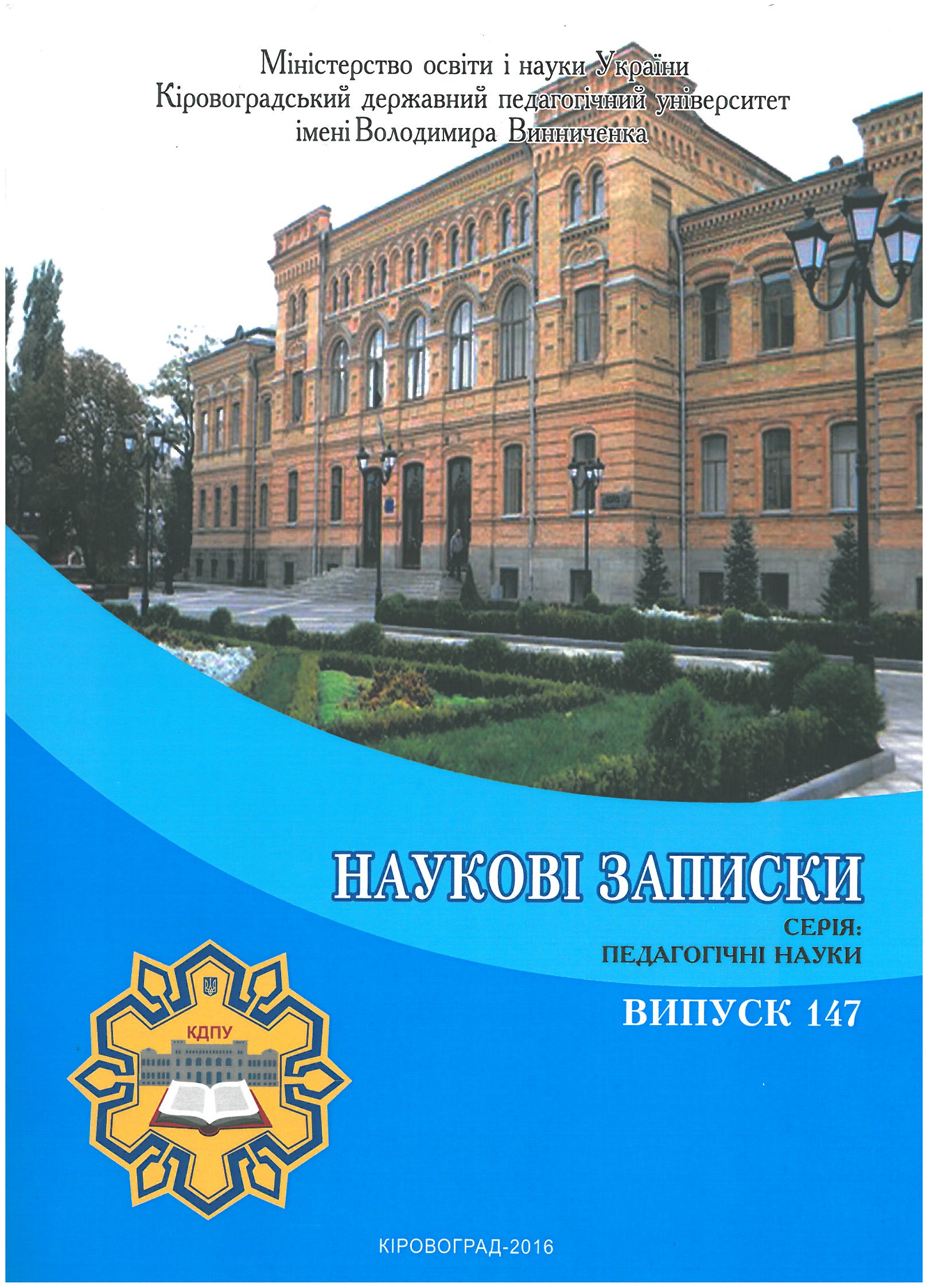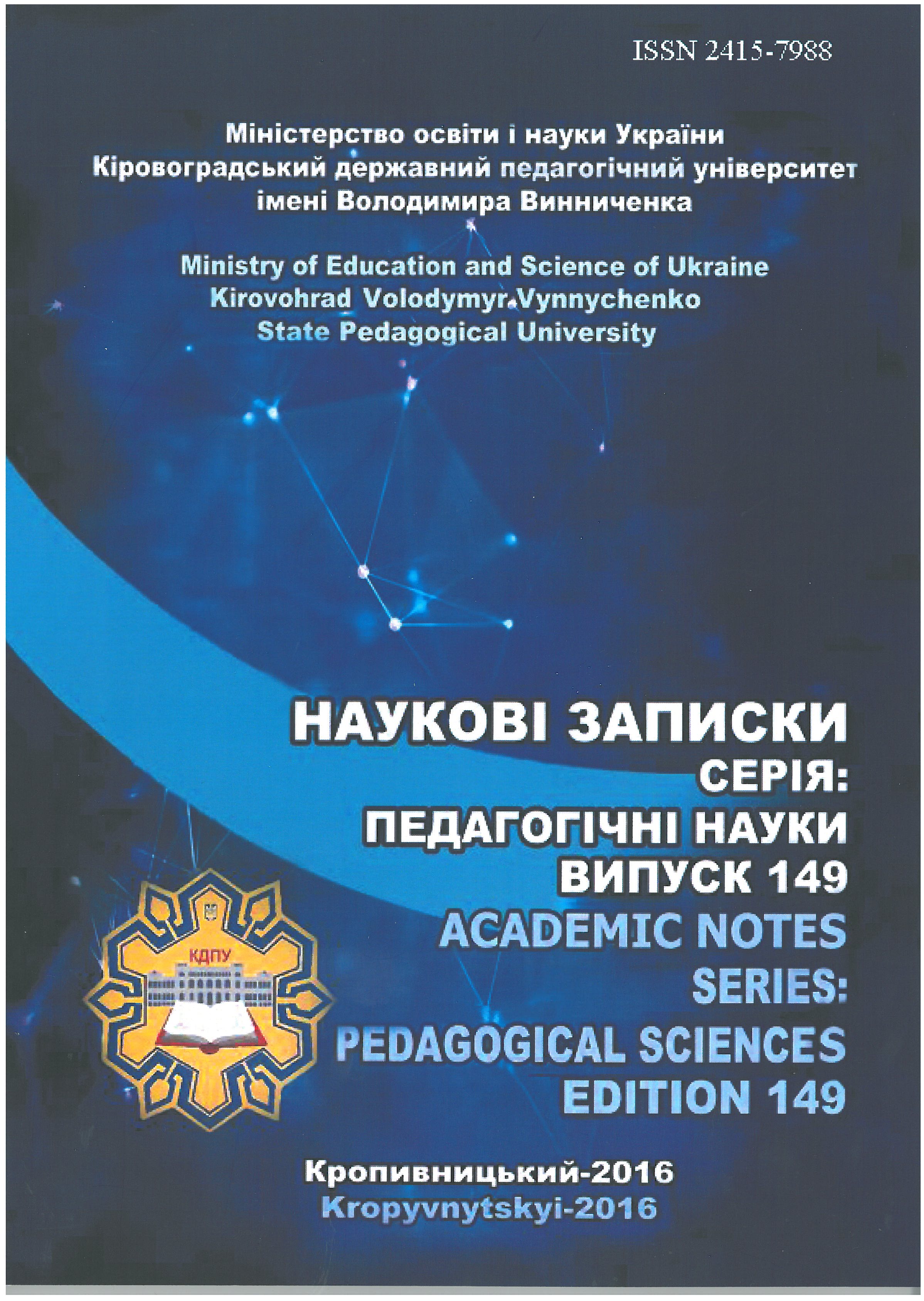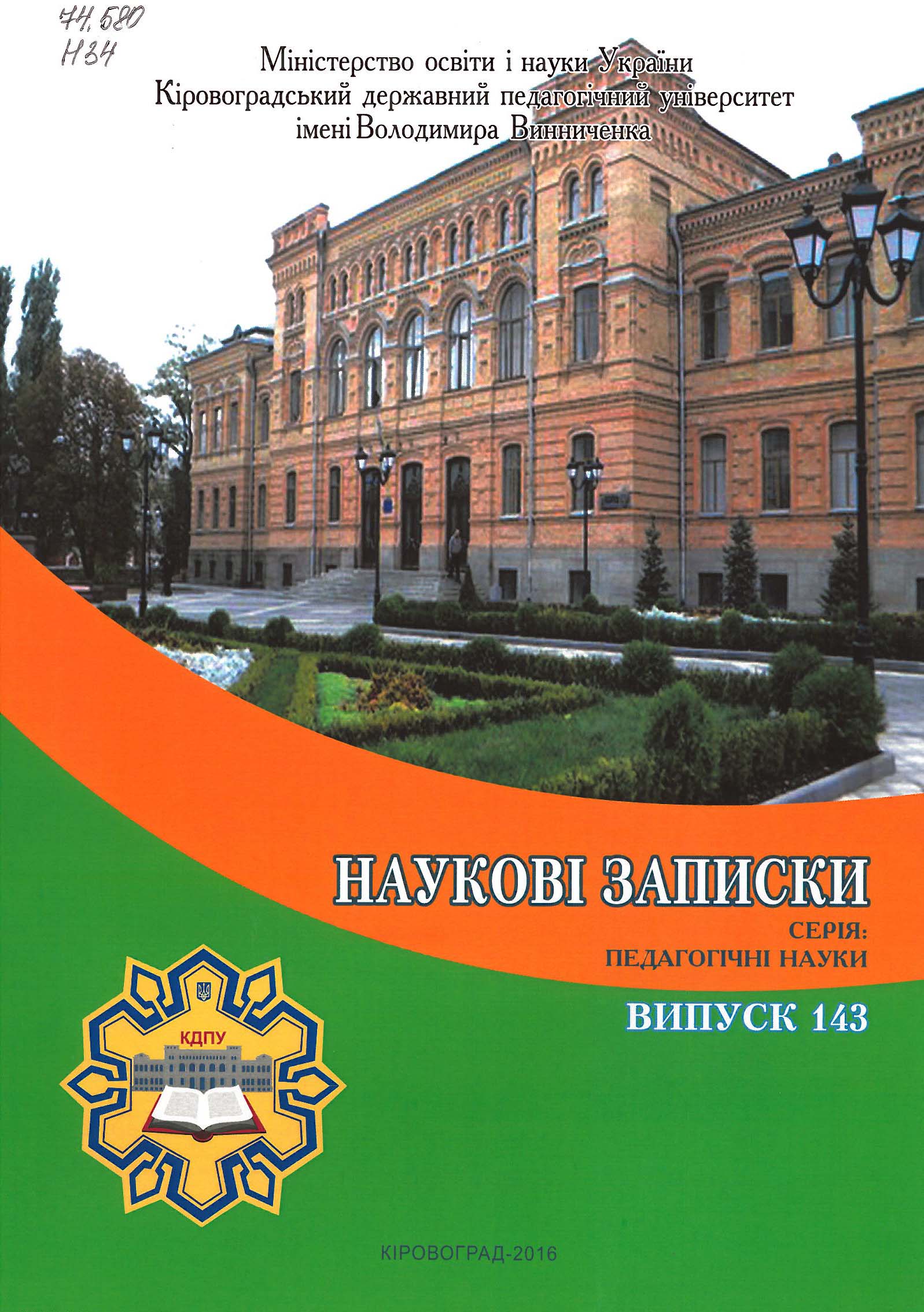Academic Commentaries. Series of Pedagogical Sciences is a journal of the open access. All the articles are free of charge to view, read, download and print.
DECLARATION ON OPEN ACCESS OF THE JOURNAL
The open access is a free of charge, fast, permanent, full-text access to scientific and educational materials in real time, which is being implemented for any user in the global information network, applied mainly to peer-reviewed research journals. Open access is realized in two main ways:
The deposition (also known as a «green» way to the open access, or self-archiving) – researchers place their already published articles in the depository – an open thematic or institutional electronic archive. The deposit can be issued in the form of an article, that passed peer review, or in the form of a preprint. Repositories also place other types of scientific and educational documents: dissertations, theses, research reports, presentations, data, images, etc. The deposit was first proposed as a general practice by Stephen Garnard in 1994, although the scientists of computer technologies had been depositing themselves spontaneously in the anonymous FTP-archives at least since the 1980s (such as CiteSeer), and physics had been doing it in the network since the early 1990s (for example, the arXiv).
The publication in the journals and academic commentaries, which are in the open access, makes materials accessible in real time immediately. The open-access journal functions according to the model different from a subscription one: the author of the article and the institution where he/she works, etc., bear all the expenditures for the creation of this journal and access to it, the end user gets access to the journal free of charge. Examples of the journals can be found in the Directory of open access journals.
The main reason of placing works in the open access is increase of the indicator of importance. There are several studies that show a substantial growth of citation indexes to the articles published in the open access.
Researches are paid by the research funds, so the article is rather a report on the done work, than an object of the revenue. The more the article is used and cited, the more links are done to it and the more works are based on it, the better it is for the research and researcher's career.
Wider idea of free material is partly correlated with the open access. However, the mode of the open material implies permission to change it, but the open access is meant only as a free, no limited availability of the material. In the scientific publications it is accustomed to maintain the permanence of the original text and associate it with a particular author. While the open access mode is applicable in our time mostly to the results of scientific research, the creator of any other material can also use the mechanisms of deposition and publications produced at its base. Creative Commons provide a wide range of typical conditions of license agreements to facilitate the process of the promulgation.
The direct users of the research articles for the most part are the other researchers. The open access helps them as readers allowing reading the articles in the journals that their libraries are not able to subscribe for. The greatest benefit is received by the researchers in the developing countries, where there are universities which do not subscribe for any foreign scientific journals. The total benefit is obvious, as no library can afford subscribing to all the necessary scientific journals because of high prices. The open access expands the circle of knowledge beyond the academic school. Such material can be read by anyone – by a professional in its field, a researcher at the adjacent direction, a journalist, a politician, a civil employee or simply an interested user.
The open access to the results of scientific researches is important for the society for several reasons. One of the arguments in its favour is the fact that most of researches are paid by the taxpayers who should have the right for the access to the results that they financed. Many people are seriously keen about the subjects of various scientific researches. In this regard the authors and editors of Wikipedia, who are eager to improve their articles, can be mentioned.
Even those who don't read scientific publications, implicitly receive benefits from finding them in the open access. People, who don't read medical journals, would prefer that their doctor had such access. The position defended by the propagandists of the open access is that it accelerates scientific progress, productivity, knowledge transfer. Acceleration of the innovative process is useful. Pupils and students can get information that is of great importance in their further learning. Critics of the open access movement point out that there is no evidence of hard access to the necessary information for those who need it.
A lot of open access projects include international cooperation. For example, SCIELO, which is a comprehensive approach to a fully open access in the published journals, includes several Latin American countries. Bioline International is a non-profit organization, created to help publishers in the developing countries, is based on the cooperation between the UK, Canada and Brazil. Bioline International Software is used around the world. Research Papers in Economics is a collective work of more than 100 volunteers from 45 countries.
The Internet fundamentally changed practical and economic realities in distributing scientific knowledge and cultural heritage. It currently provides the chance to compose a global and interactive representation of human knowledge including cultural heritage, and ensure comprehensive access to it. We are aware of the obligations related to the challenges of the Internet as a new functional environment for the dissemination of knowledge. Obviously, these changes can significantly modify the nature of scientific publications and the existing system of the guarantee of their quality. In accordance with the spirit of the Budapest Open Access Initiative, European Cultural Heritage Online and Bethesda Statement on Open Access Publishing, we sign Berlin Declaration to promote the Internet as a functional tool for the global base of scientific knowledge and its implementation in human activity, and to identify measures, which are required by scientific management, research institutes, financial agencies, libraries, archives and museums.
Our mission of spreading knowledge will not be complete if the information is not widely and reliably accessible to the society. New opportunities in the distribution of knowledge not only through traditional media, but also through the Internet within the framework of a new paradigm of the open access should be supported. We define the open access as a comprehensive source of human knowledge and cultural heritage that has been approved in advance by the scientific community. In order to realize the vision of a global and accessible representation of knowledge, the future Web has to be sustainable, interactive and transparent. The content and software tools must be freely accessible and compatible.
The support of the transition to the electronic paradigm of the open access. Our organizations are interested in further promoting of the new open access paradigm to gain big profits for science and society, so we hope to commit progress by means of: • support of our researchers and grants recipients in publishing their works in accordance with the principles of the open access paradigm; • support of cultural heritage holders in the open access to their resources through the Internet; • development of tools and methods to assess the contributions to the open access and online journals in order to maintain the standards of quality assurance and good scientific practice; • ensuring that the open access publications, having undergone the corresponding procedure of recognition, can be posted as quickly as possible; • ensuring the benefits inherent to the contributions to the infrastructure of the open access by means of the development of the software toolkit , providing meaningful content, metadata creation or publication of the individual articles.
Editor-in-Chief:
Jamal Abu Hussain – Deputy President of Graduate Studies, Al-Qasemi College, Baka Al Garbiah, Israel
Eva Smetanova – PhD, Head of Department of British and American Studies, Faculty of Arts, University of Saints Cyril and Methodius, Trnava, Slovakia
Cherkasov V. F. – Doctor of Pedagogical Sciences, Professor, Head of the Department of Musical and Theoretical and Instrumental Disciplines, Kirovohrad Volodymyr Vynnychenko State Pedagogical University (e-mail: [email protected])
Assistant of the Academic editor:
Savchenko N. S. – Doctor of Pedagogical Sciences, Professor, Professor of the Department of Pedagogics and Educational Management, Kirovohrad Volodymyr Vynnychenko State Pedagogical University (e-mail: [email protected])
Executive Secretary:
Grozan S. V. – Candidate of Pedagogical Sciences, Senior Lecturer of the Department of Musical and Theoretical and Instrumental Disciplines, Kirovohrad Volodymyr Vynnychenko State Pedagogical University (e-mail: [email protected])
Editorial Board:
Kalinichenko N. A. – Doctor of Pedagogical Sciences, Professor, Honored Teacher of Ukraine, Head of the Department of Biology and Methodology of its Teaching, Kirovohrad Volodymyr Vynnychenko State Pedagogical University (e-mail: [email protected])
Klim-Klimashevska A. – Doctor of Pedagogical Sciences, Professor of Natural-humanitarian University of Siedlce, Republic of Poland (e-mail: [email protected])
Crothers G. – Ph. D., Professor of Belfast University of Her Majesty's, United Kingdom of Great Britain and Northern Ireland
Kushnir V. A. – Candidate of Physical and Mathematical Sciences, Doctor of Pedagogical Sciences, Professor, Head of the Department of Mathematics, Kirovohrad Volodymyr Vynnychenko State Pedagogical University (e-mail: [email protected])
Osman Goktas – Dean of Faculty of Technology, Mugla Sitki Kocman University, Turkey
Radul V. V. – Doctor of Pedagogical Sciences, Professor, Head of the Department of Pedagogics and Educational Management, Kirovohrad Volodymyr Vynnychenko State Pedagogical University (e-mail: [email protected])
Radul O. S. – Doctor of Pedagogical Sciences, Professor, Professor of the Department of Pedagogics of Preschool and Primary Education, Kirovohrad Volodymyr Vynnychenko State Pedagogical University (e-mail: [email protected])
Rangelova E. – Doctor of Pedagogical Sciences, Professor, President of the International Association of Professors of Slavonic countries, Republic of Bulgaria (e-mail: [email protected])
Rastryhina A. M. – Doctor of Pedagogical Sciences, Professor, Head of the Department of Vocal and Choral Disciplines and Methodology of Musical Education, Kirovohrad Volodymyr Vynnychenko State Pedagogical University (e-mail: [email protected])
Sadovyi M. I. – Doctor of Pedagogical Sciences, Professor, Head of the Department of Theory and Methodology of Technological Training, Occupational Safety and Health, Kirovohrad Volodymyr Vynnychenko State Pedagogical University
Tkachenko O. M. – Doctor of Pedagogical Sciences, Professor, Head of the Department of Pedagogics of Preschool and Primary Education, Kirovohrad Volodymyr Vynnychenko State Pedagogical University (e-mail: [email protected])
Shandruk S. I. – Doctor of Pedagogical Sciences, Professor, Head of the Department of Linguadidactics and Foreign Languages, Kirovohrad Volodymyr Vynnychenko State Pedagogical University (e-mail: [email protected])
Yusuf Ziya Erdil – Vice President, Mugla Sitki Kocman University, Turkey



- Випуск 109
- Випуск 120
- Випуск 121 (І частина)
- Випуск 121 (ІІ частина)
- Випуск 131
- Випуск 132
- Педагогіка вищої школи: методологія, теорія, технології - I том
- Педагогіка вищої школи: методологія, теорія, технології - II том
- Педагогіка вищої школи: методологія, теорія, технології - III том
- Випуск 133 (2014)
- Випуск 134 (2014)
- Випуск 135 (2015)
- Випуск 139 (2015)
- Випуск 140 (2015)
- Випуск 141 (І частина) (2015)
- Випуск 141 (ІI частина) (2015)
- Випуск 143 (2016)
- Випуск 147 (2016)
- Випуск 149 (2016)
- Випуск 150 (2017)
- Випуск 152 (2017)
- Випуск 155 (2017)
- Випуск 156 (2017)
- Випуск 157 (2017)
- Випуск 159 (2017)
- Випуск 161 (2018)
- Випуск 163 (2018)
- Випуск 166 (2018)
- Випуск 167 (2018)
- Випуск 168 (2018)
- Випуск 170 (2018)
- Випуск 171 (2018)
- Випуск 172 (2018)
- Випуск 173 (2018)
- Випуск 174 (2019)
- Випуск 176 (2019)
- Випуск 177 частина 1 (2019)
- Випуск 177 частина 2 (2019)
Шановні науковці!
Здійснюється підготовка до друку чергового випуску збірки наукових праць «Наукові записки. Серія: Педагогічні науки», який внесено до переліку наукових фахових видань України, в яких можуть публікуватися результати дисертаційних робіт на здобуття наукових ступенів доктора і кандидата наук. Наказ Міністерства освіти і науки України № 241 від 09. 03. 2016 р.
Збірник зареєстровано в міжнародних наукометричних базах Index Copernicus international (ICI), Google Scholar, Research Bible, WorldCat, Academic Journals.
Мета і завдання: ознайомлення з результатами досліджень вітчизняних та зарубіжних науковців у галузі педагогіки.
Статті подаються в авторській редакції.
Політика журналу дозволяє змінювати та створювати нові матеріали відповідно до ліцензії Creative Commons. CC-BY-SA.
Статті рецензуються членами редакційної колегії.
Редколегія перевіряє статті на плагіат.
ВИМОГИ ДО СТАТЕЙ, ЯКІ БУДУТЬ НАДХОДИТИ ДО РЕДАКЦІЇ
Вимоги до оформлення:
- Стаття повинна бути написана українською, англійською або російською мовою, з дотриманням наукового стилю та без мовних помилок.
- Електронний варіант статті в редакторі Word – 2003, шрифт Times New Roman, збереження у форматі doc або rtf українською, російською чи англійською мовами.
- Текст на аркуші А – 4, розмір шрифту 14, інтервал 1,5 пт; поля: зліва – 30 мм; праворуч – 15 мм; знизу і зверху – 25 мм.
- Обсяг статті не менше 0,5 друк. аркуша (10-12 сторінок).
Розміщення на сторінці:
- В лівому верхньому кутку: УДК.
- В правому верхньому кутку: прізвище, ім'я та по батькові (повністю), науковий ступінь, вчене звання, посада, місце роботи, ORCID, DOI, електронна адреса.
- Через один інтервал по центру великими літерами та жирним шрифтом – назва статті.
- Посилання на наукову літературу в тексті подаються за таким зразком: [5, с. 80].
- Через 1 рядок після тексту розміщується слово СПИСОК ДЖЕРЕЛ та подається список використаних джерел (в алфавітному порядку) відповідно до загальноприйнятих вимог до бібліографічного опису наукової літератури (див. журнал «Бюлетень ВАК України». – 2009. – № 5).
- Далі через рядок після cписку джерел в алфавітному порядку подається слово REFERENCES (див. Зразок оформлення статті). Список використаних джерел українською та російською мовами транслітерується латиницею. Прізвища авторів, назви джерел (книг, журналів, конференцій, статей тощо) транслітеруються, а в квадратних дужках подається переклад назв англійською мовою. Іноземні джерела, укладені латиницею, залишаються без змін (за стандартом APA 5th (www.apastyle.org).
- Відомості про автора українською, російською та англійською мовами (прізвище, ім’я, по батькові, посада, науковий ступінь, вчене звання, місце роботи) подаються без скорочень.
- Наукові інтереси (українською та англійською мовами) – обов’язково. Далі через рядок великими літерами назва статті розмір (кегль) 14 пт, анотація та ключові слова (5-10) – українською та російською мовами, міжрядковий інтервал 1, розмір (кегль) 14 пт, шрифт – курсив.
- До статті додається назва статті та реферат англійською мовою обсягом 2000-2200 знаків (не менше 25 рядків), розмір (кегль) 14 пт, міжрядковий інтервал 1,5.
РЕДКОЛЕГІЯ
Зразок оформлення статті
| УДК: 378.14 | |
|
|
ПОПОВА Ірина Петрівна – доктор педагогічних наук, професор, професор кафедри природничих і гуманітарних наук Харківського національного автомобільнодорожнього університету ORCID, DOI e-mail: [email protected] |
ВЗАЄМОЗВ’ЯЗОК ВИДІВ МОВЛЕННЄВОЇ ДІЯЛЬНОСТІ
В НАВЧАННІ УКРАЇНСЬКОЇ МОВИ СТУДЕНТІВ-ІНОЗЕМЦІВ
НЕФІЛОЛОГІЧНОГО ПРОФІЛЮ
Постановка та обгрунтування актуальності проблеми.
Аналіз останніх досліджень і публікацій.
Мета статті.
Виклад основного матеріалу дослідження. Висновки та перспективи подальших розвідок напряму.
Для публікацій англійською мовою:
RELATIONSHIP OF SPEECH OF
LANGUAGE TEACHING IN UKRAINIAN FOREIGN STUDENTS OF
NON-PHILOLOGICAL PROFILE
Аnalysis of recent research and publications.
The purpose of the article.
The maine material of the study.
Conclusions and prospects for further researches of directions.
СПИСОК ДЖЕРЕЛ
- Рагозіна В. В. Ліплення й розігрування пластилінових казок (соціалізуємо дошкільника). Методичні рекомендації для вихователів / Рагозіна В. В. // Шкільний світ. № 2 (58), лютий, 2016 . – С. 18–33.
- Рагозіна В. В. Учимося в майстрів декоративно-ужиткового мистецтва: малюємо, ліпимо. Шостий рік життя. Альбом для дитячої творчості та методичні рекомендації / В. В. Рагозіна, Н. В. Очеретяна. – Київ: Генеза, 2017. – 48 с. + 12 c. вкл. – (Серія «Маленький митець»).
- Рагозіна В. В., Очеретяна Н.В. Універсальний альбом з художньої творчості для занять з дітьми 1-3-х років. Ч.1. Вид-во «Зірка» / В. В. Рагозіна, Н. В. Очеретяна. – 2015.– 35 с.
- Рагозіна В. В., Очеретяна Н. В. Універсальний альбом з художньої творчості для занять з дітьми 3–5-ти років. Ч.1. Вид-во «Зірка». / В. В. Рагозіна, Н. В. Очеретяна. – 2014. – 35 с.
- Сухорукова Г. В., Дронова О. О., Голота Н. М., Янцур Л. А. Образотворче мистецтво з методикою викладання в дошкільному навчальному закладі : підручник / за заг. ред. Г. В. Сухорукової. – Київ: Видавничий дім «Слово», 2010. –376 с. : іл.
- Халезова Н. Б. Народная пластика и декоративная лепка в детском саду: Пособие для воспитателя. – М.: Просвещение, 1984. – 112 с., ил.
REFERENCES
- Ragozina, V. V. (2016, lyutiy). Liplennya y rozigruvannya plastilinovih kazok (sotsializuemo doshkilnika). Metodichni rekomendatsiyi dlya vihovateliv [Modeling and casting of clay tales (will socialize preschooler). Guidelines for educators]. Shkilniy svit, № 2 (58), 18–33.
- Ragozina, V. V. (2017). Uchimosya v maystriv dekorativno-uzhitkovogo mistetstva: malyuemo, lipimo. Shostiy rik zhittya. Albom dlya dityachoyi tvorchosti ta metodichni rekomendatsiyi [Learn from the masters of decorative-applied art: drawing, sculpting. The sixth year of life. Album for children and methodical recommendations]. Kiyiv : Geneza.
- Ragozina, V. V., Ocheretyana N. V. (2015). Universalniy albom z hudozhnoyi tvorchosti dlya zanyat z ditmi 1-3-h rokiv. Ch.1. [Universal album of artistic creativity for children 1-3 years. Part 1.]. Kyiv: Vid-vo «Zirka».
- Ragozina, V. V., Ocheretyana N. V. (2014). Universalniy albom z hudozhnoyi tvorchosti dlya zanyat z ditmi 3-5-ti rokiv. Ch.1. [Universal album of artistic creativity for children 3-5 years. Part 1.]. Kyiv: Vid-vo «Zirka».
- Sukhorukova, H. V., Dronova, O. O., Holota, N. M., Yantsur, L. A. (2010). Obrazotvorche mystetstvo z metodykoi vykladannia v doshkilnomu navchalnomu zakladi [Fine Art with teaching methods in kindergarten]. Kyiv: Vydavnychyi Dim «Slovo».
- Halezova, N. B. (1984). Narodnaya plastika i dekorativnaya lepka v detskom sadu: Posobie dlya vospitatelya [National plastic and decorative molding in the kindergarten: a manual for the educator]. Moscow: Prosveschenie.
ВІДОМОСТІ ПРО АВТОРА
Попова Ірина Петрівна – доктор педагогічних наук, професор, професор кафедри природничих і гуманітарних наук Харківського національного автомобільно-дорожнього університету.
Наукові інтереси: методика навчання української мови у вищій школі, формування особистості фахівця нефілологічного профілю.
INFORMATION ABOUT THE AUTHOR
Pороva Iryna Petrivna – Doctor of Pedagogical Sciences, Professor, Professor of the Department of Natural and Humanities, Kharkiv National Automobile and Road University.
Circle of scientific interests: methods of teaching the Ukrainian language in higher school, formation of professional identity of non-philological profile.
ПОПОВА Ірина Петрівна. ВЗАЄМОЗВ’ЯЗОК ВИДІВ МОВЛЕННЄВОЇ ДІЯЛЬНОСТІ У НАВЧАННІ УКРАЇНСЬКОЇ МОВИ СТУДЕНТІВ-ІНОЗЕМЦІВ НЕФІЛОЛОГІЧНОГО ПРОФІЛЮ
Мета курсу української мови для студентів-іноземців нефілологічного профілю пов’язана, по-перше, з набуттям навичок і вмінь для професійної сфери спілкування, що включає чотири основних її аспекти (говоріння, читання, аудіювання, письмо) шляхом переносу їх у виробничо-професійну сферу і, подруге, у розвитку спеціальних навичок і вмінь, необхідних для успішної комунікації. У статті розглянуто види мовленнєвої діяльності та вимоги до них щодо набуття знань, умінь і навичок комунікації студентів-іноземців.
Ключові слова: види мовленнєвої діяльності; говоріння, читання, аудіювання, письмо; студенти-іноземці нефілологічного профілю; діалогічне й полілогічне мовлення; монологічне мовлення.
ПОПОВА Ирина Петровна. ВЗАИМОСВЯЗЬ ВИДОВ РЕЧЕВОЙ ДЕЯТЕЛЬНОСТИ В ОБУЧЕНИИ УКРАИНСКОМУ ЯЗЫКУ СТУДЕНТОВ-ИНОСТРАНЦЕВ НЕФИЛОЛОГИЧЕСКОГО ПРОФИЛЯ
Цель курса украинского языка для студентов-иностранцев нефилологического профиля связана, во-первых, с приобретением навыков и умений для профессиональной сферы общения, включающая четыре основных ее аспекта (говорение, чтение, аудирование, письмо) путем переноса их в производственно-профессиональную сферу и, во-вторых, в развитии специальных навыков и умений, необходимых для успешной коммуникации. В статье рассмотрены виды речевой деятельности и требования к ним в отношении приобретения знаний, умений и навыков коммуникации студентов-иностранцев.
Ключевые слова: виды речевой деятельности; говорение, чтение, аудирование, письмо; студенты-иностранцы нефилологического профиля; диалогическая и полилогическая речь; монологическая речь.
POPOVA Iryna Petrivna. INTERRELATION OF SPEECH TYPES ACTIVITY WITH FORMS OF WORK WITH THE TEXT IN TRAINING UKRAINIAN FOR FOREIGN STUDENTS OF NON-PHILOLOGICAL PROFILE
Training of foreign students as future experts (engineers, ecologists, physicians, druggists, etc.) is in formation of abilities and skills of creation of the developed monological and dialogical statement on material of text units of scientific style means of Ukrainian. Ukrainian course purpose for foreign students of not philological profile is connected, first, with acquisition of skills and abilities for the professional sphere of communication, which includes four main aspects (speaking, reading, audition, writing) by their transfer in production and professional spheres and, secondly, in development of the special skills and abilities which necessary for successful general communication. It’s necessary to admit that in the oral monological speech (performances with the report on a subject, with the message on a special topic) lexical and grammatical skills of functional style of production and professional sphere and also the abilities connected with the communicative purposes of production and professional public speech are formed. The communicative abilities connected with future professional activity of students not philologists are: to define the speech task accurately, to plan the course of a conversation and to reconstruct the communicative program in the process of communication, to react adequately on remarks of the interlocutor according to a situation in dialogical and polylogical speeches. In audition it is an ability to understand a public statement. In written communication these are abilities connected with production of messages of different types (report, essay, paper, composition, instructions on scientific and professional perspectives, business documentation) also to choose according to the principles and specifics of this functional sphere adequate language means. In this article types of speech activity and the requirement to them in the way of knowledge acquisition, skills of foreign students communication are briefly considered.
Keywords: types of speech activities; speaking, reading, listening, writing; students of not philological profile; dialogical and polylogical speeches monologue speech.
Матеріали приймаються протягом календарного року у електронному вигляді на електронну пошту [email protected]
Оплата за друк матеріалів: 1 стор. – 50 грн. Для докторів наук друк матеріалів безкоштовно (надається електронна версія). Вартість паперової версії журналу 150 грн.
Пересилка збірника здійснюється Новою поштою за рахунок отримувача.
Після прийняття статті до друку розсилаються реквізити оплати.
Скановану квитанцію про оплату статті надіслати на електронну пошту.
Вказати адресу нової пошти отримувача.
Контактні телефони:
(0522) 22-47-73 (мистецький факультет ЦДПУ ім. В. Винниченка);
066-486-24-19 (зав. кафедрою музичного мистецтва і хореографії, доктор педагогічних наук, професор Черкасов Володимир Федорович);
066-500-35-43 (кандидат педагогічних наук Куликова Світлана Вікторівна).
Materials are accepted in electronic form on the email during the calendar year: [email protected]
Payment for printing of the materials: 1 page is 50 UAH. For doctors of science, printing of materials is free of charge (electronic version is provided). The cost of the paper version of the magazine is 150 UAH.
Sending of the collection is carried out via "Nova Poshta" by the recipient.
After the article has been accepted, the payment details will be sent to the press.
Scanned receipt for payment of the article to send by e-mail.
Specify the address of the recipient's new mail.
Contact phones:
(0522) 22-47-73 (Faculty of Arts, Kirovohrad Vynnychenko State Pedagogical University);
066-486-24-19 (Head Chair of Music Art and Choreography, Doctor of Pedagogical Sciences, Professor Cherkasov Volodymyr Fedorovych);
066-500-35-43 (Candidate of Pedagogical Sciences Kulikova Svitlana Viktorivna).



